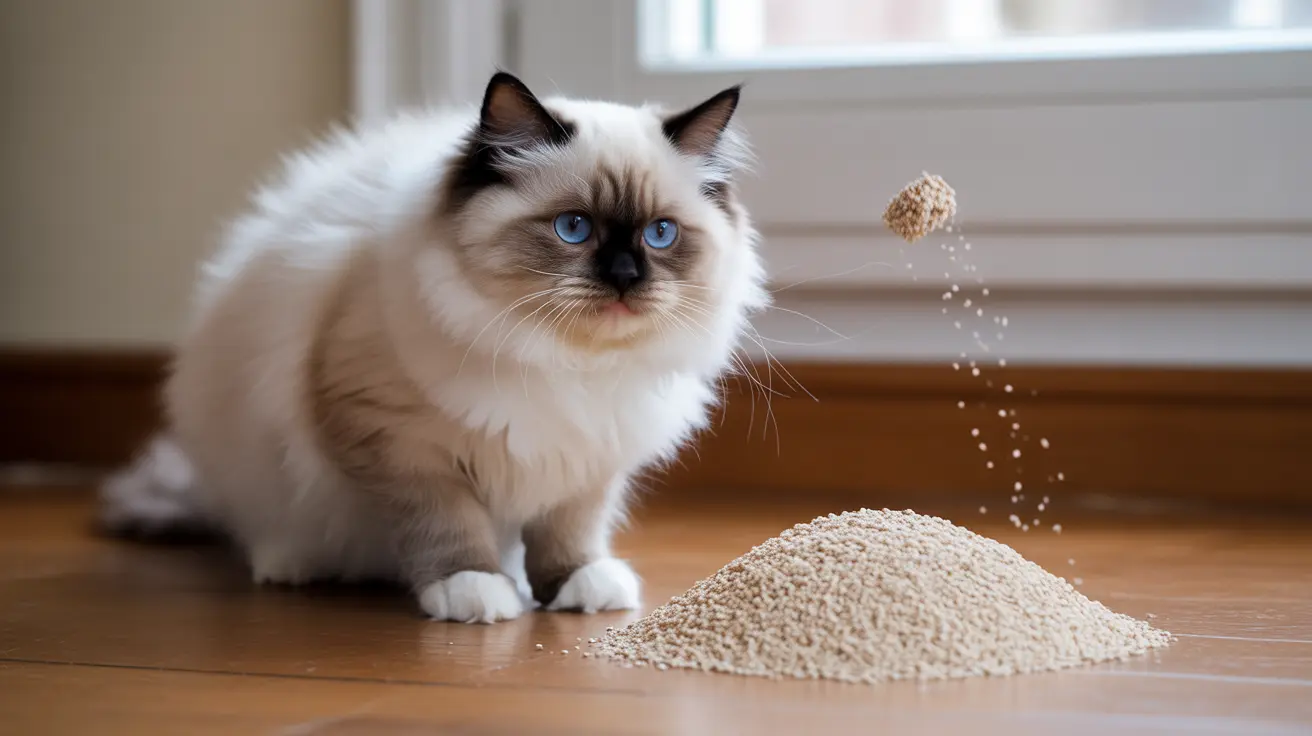Finding cat poop on your floor instead of in the litter box can be both frustrating and concerning. This unexpected behavior often signals underlying issues that require attention, from medical conditions to environmental stressors. Understanding why your cat has started pooping outside the litter box is the first step toward resolving this common feline problem.
In this comprehensive guide, we'll explore the various reasons behind this behavior and provide practical solutions to help get your cat back to proper litter box habits. Whether it's a one-time incident or an ongoing issue, we'll help you identify the root cause and implement effective solutions.
Medical Conditions That Can Cause Floor Pooping
When your cat starts pooping on the floor, medical issues should be your first consideration. Common health problems that can cause this behavior include:
- Inflammatory bowel disease (IBD)
- Constipation or diarrhea
- Urinary tract infections
- Arthritis and joint pain
- Parasitic infections
If your cat suddenly changes their bathroom habits, schedule a veterinary examination to rule out these medical conditions. Early detection and treatment can prevent the behavior from becoming habitual.
Stress and Behavioral Factors
Cats are sensitive creatures, and changes in their environment can trigger stress-related floor pooping. Common stress factors include:
- Moving to a new home
- Introduction of new pets or family members
- Changes in daily routine
- Conflict with other household pets
- Loud noises or construction
Creating a calm, stable environment and maintaining consistent routines can help reduce stress-related elimination issues.
Litter Box Problems and Solutions
Often, the problem lies with the litter box itself. Consider these common issues:
- Dirty or infrequently cleaned boxes
- Wrong size or type of box
- Undesirable litter texture or scent
- Poor box location
- Insufficient number of boxes
Follow the "one box per cat plus one extra" rule, and ensure boxes are cleaned daily. Place them in quiet, accessible locations away from food and water bowls.
Age-Related Challenges
Senior cats may have special needs that affect their litter box habits. Common age-related issues include:
- Arthritis making it difficult to climb into high-sided boxes
- Cognitive dysfunction causing confusion about box location
- Decreased mobility requiring more accessible box placement
- Vision problems affecting navigation to the box
Adapting the litter box setup to accommodate these age-related changes can help prevent accidents.
Environmental Modifications for Success
Making strategic changes to your cat's environment can help prevent floor pooping:
- Use enzymatic cleaners on soiled areas
- Install night lights near litter boxes
- Provide multiple easy-access boxes throughout the home
- Consider using pheromone diffusers to reduce stress
- Create quiet, private spaces for litter boxes
Frequently Asked Questions
Why did my cat suddenly start pooping outside the litter box?
Sudden changes in litter box habits often indicate a medical issue or significant environmental stressor. Schedule a veterinary check-up to rule out health problems, and review recent changes in your home that might be causing stress.
Could a medical condition be causing my cat to poop on the floor instead of the litter box?
Yes, several medical conditions can cause inappropriate elimination, including inflammatory bowel disease, arthritis, infections, and parasites. Always consult with your veterinarian when this behavior starts suddenly.
How can stress or changes in the home environment lead to my cat avoiding the litter box?
Cats are sensitive to environmental changes. New pets, moving homes, or changes in routine can create anxiety, leading to litter box avoidance. Maintaining consistency and providing safe spaces can help reduce stress-related accidents.
What litter box adjustments can I make to prevent my cat from pooping on the floor?
Ensure boxes are clean, properly sized, and easily accessible. Use unscented litter, provide multiple boxes, and place them in quiet locations. Consider different box styles and litter types to find what your cat prefers.
How do aging or arthritis problems affect my cat's litter box habits?
Senior cats with arthritis may struggle with high-sided boxes or stairs. Cognitive decline can cause confusion about box location. Provide low-entry boxes, place them on each floor, and ensure easy access for older cats.
Remember, most cases of inappropriate elimination can be resolved with proper veterinary care, environmental modifications, and patience. Never punish your cat for accidents, as this can increase stress and worsen the problem. With consistent attention to their needs and proper medical care when necessary, you can help your cat return to regular litter box use.






